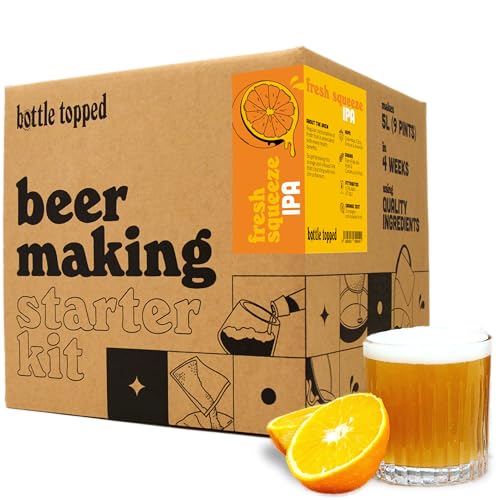BobM
New Member
I've just opened my latest batch which is a Ritchey's Simply Yorkshire Bitter. It's only my 5th batch since I started brewing from the very basic kits and previous kits have all had a reasonable head on pouring even if it didn't last long. Very disappointing when what comes out has absolutely no sign of head whatsoever. It's like drinking flat coke although it does taste of beer, if slightly sweet suggesting that the priming sugar just didn't ferment. When I bottled it there was certainly some cloudiness which suggested to me there would be some resident yeast.
The only things I did differently to previous batches were:
1) I'd acquired and used a bottle washing device and drying rack,
2) I switched to Suresan from VWP to avoid the hassle of rinsing bottles,
3) I moved the fermenting bin out to the garage for 24 hours before bottling as it seemed very cloudy and thought that would constitute a cold crash (I've since been told that cold crash needs to be down to low fridge temperatures and the Garage was probably only down at 8-10 degrees at the time). I also wanted to do the bottling in a garage to reduce cleaning up.
There has been a slight estery smell / taste to a couple of the batches which after researching I'm putting down to having the bin sitting on tiles on our underfloor heating. This seemed to be maintaining the perfect Fermentation temperature of about 20-22C but perhaps I have completely killed the yeast, but all my other batches have been treated the same and they had a head. I will be lifting future batches slightly off the floor.
Any thoughts on what might be the cause?
Thanks!
The only things I did differently to previous batches were:
1) I'd acquired and used a bottle washing device and drying rack,
2) I switched to Suresan from VWP to avoid the hassle of rinsing bottles,
3) I moved the fermenting bin out to the garage for 24 hours before bottling as it seemed very cloudy and thought that would constitute a cold crash (I've since been told that cold crash needs to be down to low fridge temperatures and the Garage was probably only down at 8-10 degrees at the time). I also wanted to do the bottling in a garage to reduce cleaning up.
There has been a slight estery smell / taste to a couple of the batches which after researching I'm putting down to having the bin sitting on tiles on our underfloor heating. This seemed to be maintaining the perfect Fermentation temperature of about 20-22C but perhaps I have completely killed the yeast, but all my other batches have been treated the same and they had a head. I will be lifting future batches slightly off the floor.
Any thoughts on what might be the cause?
Thanks!








































